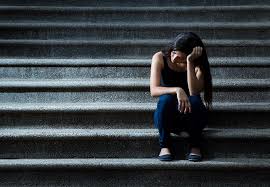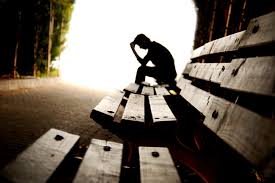
Stigma is when someone sees you in a negative way because of your mental illness. Discrimination is when someone treats you in a negative way because of your mental illness. Social stigma and discrimination can make mental health problems worse and stop a person from getting the help they need.
Impact of Stigma on people with Mental Health

People with mental illness face both the challenge of the disease along with the stereotype and other’s judgmental thoughts. The public stigma is not the only type of stigma these people are dealing with, there is also the self-stigmatization. Self-stigmatization is an obstacle in the way of personal development and can challenge obtaining a good position in personal and professional life.
Higher levels of cortisol and depression were found between stigmatized people. Those who stigmatize have feelings of disgust.
Stigma in healthcare has another dimension. Because mental illness is associated with beliefs of less productivity, healthcare professionals may not seek help when needed and fear judgments from their peers with increased risk of suicide .From another point of view, some authors reported a positive impact of stigma on people with mental illness. While it could be threatening for some people, others may be energized and motivated further into therapy
Stigma and Discrimination

People with mental health problems say that the social stigma attached to mental ill health and the discrimination they experience can make their difficulties worse and make it harder to recover.
Mental health problems are common. They affect thousands of people in , everyday, friends, families, work colleagues and society in general.
- It is estimated that 1 in 6 people in the past week experienced a common mental health problem.
- 10% of children and young people (aged 5-16 years) have a clinically diagnosable mental problem.
- Depression is the predominant mental health problem worldwide, followed by anxiety, schizophrenia and bipolar disorder.
Most people who experience mental health problems recover fully, or are able to live with and manage them, especially if they get help early on.
But even though so many people are affected, there is a strong social stigma attached to mental ill health, and people with mental health problems can experience discrimination in all aspects of their lives.
Many people’s problems are made worse by the stigma and discrimination they experience – from society, but also from families, friends and employers.
Nearly nine out of ten people with mental health problems say that stigma and discrimination have a negative effect on their lives.
We know that people with mental health problems are amongst the least likely of any group with a long-term health condition or disability to:
- find work
- be in a steady, long-term relationship
- live in decent housing
- be socially included in mainstream society.
This is because society in general has stereotyped views about mental illness and how it affects people. Many people believe that people with mental ill health are violent and dangerous, when in fact they are more at risk of being attacked or harming themselves than harming other people.
Stigma and discrimination can also worsen someone’s mental health problems, and delay or impede their getting help and treatment, and their recovery. Social isolation, poor housing, unemployment and poverty are all linked to mental ill health. So stigma and discrimination can trap people in a cycle of illness.
The situation is exacerbated by the media. Media reports often link mental illness with violence, or portray people with mental health problems as dangerous, criminal, evil, or very disabled and unable to live normal, fulfilled lives.
This is far from the case.
Research shows that the best way to challenge these stereotypes is through firsthand contact with people with experience of mental health problems. A number of national and local campaigns are trying to change public attitudes to mental illness.
Steps to Cope with Stigma

- Get treatment. You may be reluctant to admit you need treatment. Don’t let the fear of being labeled with a mental illness prevent you from seeking help. Treatment can provide relief by identifying what’s wrong and reducing symptoms that interfere with your work and personal life.
- Don’t let stigma create self-doubt and shame. Stigma doesn’t just come from others. You may mistakenly believe that your condition is a sign of personal weakness or that you should be able to control it without help. Seeking counseling, educating yourself about your condition and connecting with others who have mental illness can help you gain self-esteem and overcome destructive self-judgment.
- Don’t isolate yourself. If you have a mental illness, you may be reluctant to tell anyone about it. Your family, friends, clergy or members of your community can offer you support if they know about your mental illness. Reach out to people you trust for the compassion, support and understanding you need.
- Don’t equate yourself with your illness. You are not an illness. So instead of saying “I’m bipolar,” say “I have bipolar disorder.” Instead of calling yourself “a schizophrenic,” say “I have schizophrenia.”
- Join a support group. Some local and national groups, such as the National Alliance on Mental Illness (NAMI), offer local programs and internet resources that help reduce stigma by educating people who have mental illness, their families and the general public. Some state and federal agencies and programs, such as those that focus on vocational rehabilitation and the Department of Veterans Affairs (VA), offer support for people with mental illness.
- Get help at school. If you or your child has a mental illness that affects learning, find out what plans and programs might help. Discrimination against students because of a mental illness is against the law, and educators at primary, secondary and college levels are required to accommodate students as best they can. Talk to teachers, professors or administrators about the best approach and resources. If a teacher doesn’t know about a student’s disability, it can lead to discrimination, barriers to learning and poor grades.
- Speak out against stigma. Consider expressing your opinions at events, in letters to the editor or on the internet. It can help instill courage in others facing similar challenges and educate the public about mental illness.
